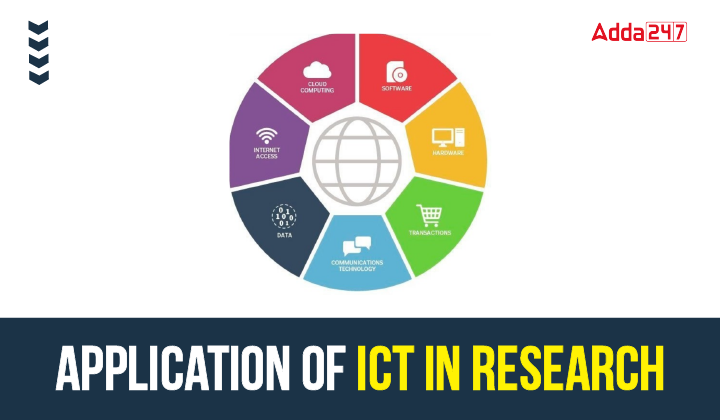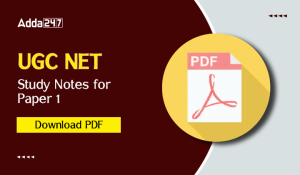Table of Contents
The application of Information and Communication Technology (ICT) in research has revolutionized how we conduct investigations and advance knowledge across various fields. With the advent of ICT tools, data collection, analysis, and dissemination have become more efficient and comprehensive. Researchers now rely on digital platforms to gather data from a myriad of sources, such as online surveys, social media, and sensor networks, making ICT indispensable in modern research methodologies. This has led to more accurate, timely, and wide-reaching research outcomes, propelling various fields forward.
What is ICT?
ICT stands for “Information and Communication Technology.” It refers to the diverse set of technologies and tools that are used to manage, process, transmit, and exchange information. ICT encompasses both hardware and software components, as well as the networks and systems that enable communication and data manipulation. It plays a crucial role in modern society, impacting various aspects of daily life, business, education, research, and more.
Information and Communication Technology (ICT) is a holistic term associated with all communication devices such as television, cellular phones, computer, and network hardware and software as well as the various services and applications associated with them.
Association of ICT
ICT plays an integral role in the research area by-
- Identification of research topic on available online platforms.
- Helps in the review of the available literature.
- Helping to get in touch with the subject matter experts of the respective field.
- Choosing the right method of Research
- Effective data collection and summarising.
- Sharing information among the desired stakeholders
- Accessing multiple databases for needed data sets as per requirement.
Application of ICT in Research
There are thousands of digital tools for researchers that can help them to explore their research arena in an effective way. These ICT tools are available for accessing information related to below aspects:

I) ICT application before Data Analysis:
ICT has a wide application in the prior analysis phase which is shown below with the help of the given points:
- Searching Research Papers/ theses/ dissertations and articles:
Search engines like Google/Bing/Yahoo assist in finding useful and relevant information required by the researchers by exploring numerous articles, dissertations and theses. Earlier researchers search in the libraries manually which is a very time-consuming task. Using ICT in search makes researchers aware of contemporary interests and research questions. There are different resources available online now like i.e. Shodhganga, Google Scholar, Microsoft Academic Search and SSRN etc.
- Summarizing literature
With the help of ITC researchers cannot only collect the previous work done by other subject experts but also ICT can help a researcher to sort, classify and store all the literature related to the topic in a well-defined manner so that it can be used or referred to when required. Mendeley is an example of such kind of software that can help the researcher in saving their literature systematically and ultimately saves their time and effort
- Keyword searching
Keywords are an important part of any research. It is important for every researcher that specific keywords are to be identified in order to find relevant sources of literature. Here, a researcher can easily use the function of search or find to easily detect these keywords and phrases.
- Collecting data
After finding out the previous literature on the particular topic and defining the Research Design it is important to collect data in a well-defined way ICT can help the researcher to collect data online and through web-based resources such as Google Form and Survey Monkey.
II) Application of ICT during data analysis
In the stage of data analysis, ICT plays a vital role in analyzing data. This analysis can be of two types one is quantitative data analysis second is qualitative data analysis.
- Quantitative data analysis
There are different statistical measures available for analyzing quantitative data. Example: Regression, t-test, Z test, ANOVA etc that can help researchers to reach and come up with results in a more precise and accurate manner. Following are the major tools available under the ICT for quantitative data analysis like
| ICT for quantitative data analysis | ICT for Qualitative data analysis |
|
|
III) Application of ITC after data analysis
After data analysis, the next step on the part of the researcher is to compile the findings and submit the results of the research. Following are the major aspects that are part of post data analysis phase are given below:
- References and Bibliography compilation
It is a very tedious task to compile references and Bibliography manually. But now with the advent of ICT researchers can compile references and bibliographies automatically and accurately. For example, there are software that can help you to compile references in an efficient manner example endnote, Mendeley, and Zotero.
- Discussions on thesis or dissertation
There are different online platforms available that help subject matter expert supervisors to discuss by sharing research materials and their comments thereon Like academy.edu and ResearchGate
- Detecting plagiarism
Plagiarism has become one of the major problems in today’s research. In order to avoid plagiarism there is a need that researchers should use ICT tools and software available to check on the problem of plagiarism. Examples: Grammarly, Turnitin, Plagiarism Detector etc
- Manuscript submission tools
Gone are the days when the manuscripts are submitted manually or via just an email today we are having different peer-review software and electronic manuscript submission software that can help researchers to submit and check the status of the manuscript easily and without any delay. Examples: Elsevier, Wiley, Sage publications etc.
Download Application of ICT in Research Study Notes PDF
Hence, ICT has played an important role in the field of research by giving researchers different Tools and techniques that can be used prior to the Analysis of data during the Analysis of data and post Analysis of data in order to find out something rational from the research problem
Download Application of ICT in Research Study Notes PDF
Download Application of ICT in Research Study Notes PDF
Hence, ICT has played an important role in the field of research by giving researchers different Tools and techniques that can be used prior to the Analysis of data during the Analysis of data and post Analysis of data in order to find out something rational from the research problem




 UGC NET Study Notes for Paper 1, Downloa...
UGC NET Study Notes for Paper 1, Downloa...
 GSET Teaching Aptitude Questions and Ans...
GSET Teaching Aptitude Questions and Ans...
 समुद्र का पर्य�...
समुद्र का पर्य�...












